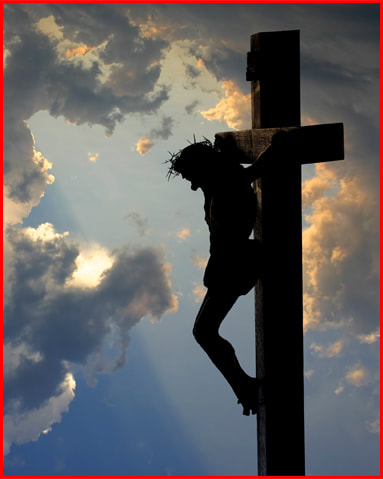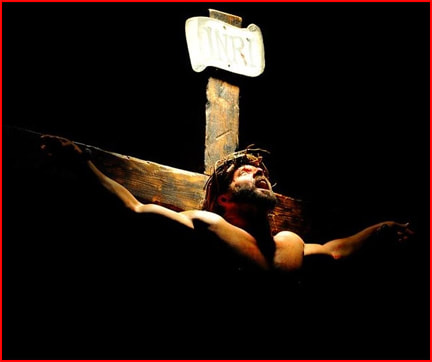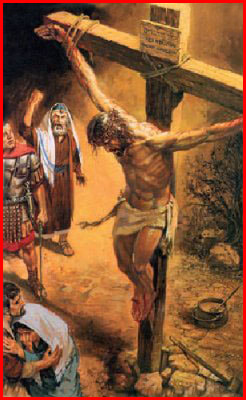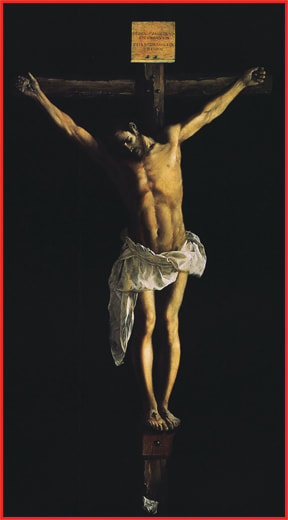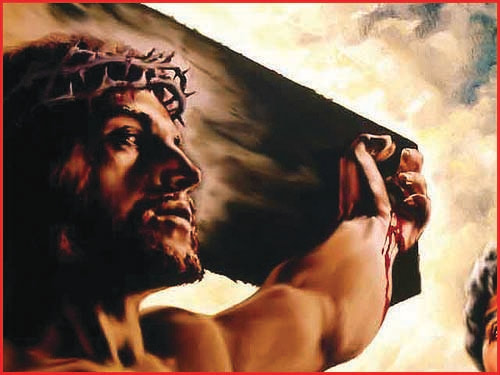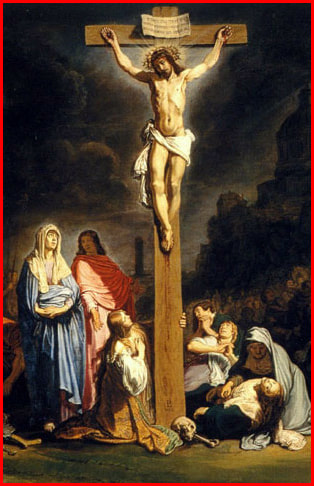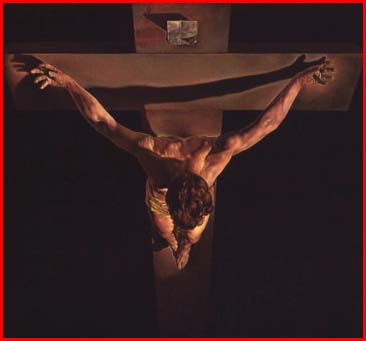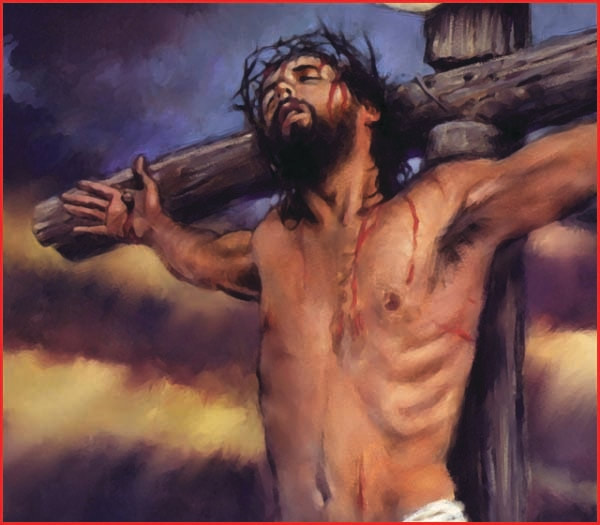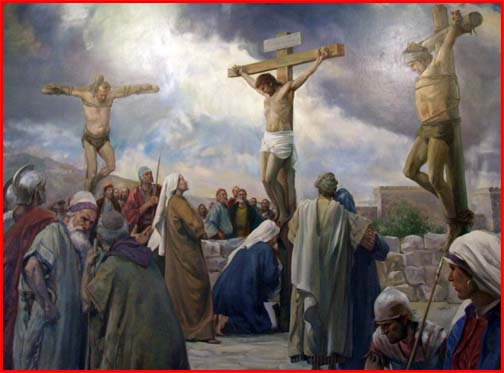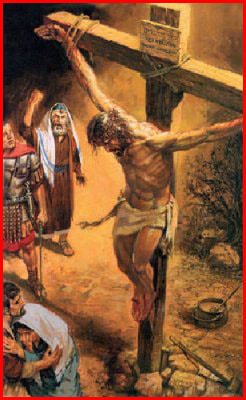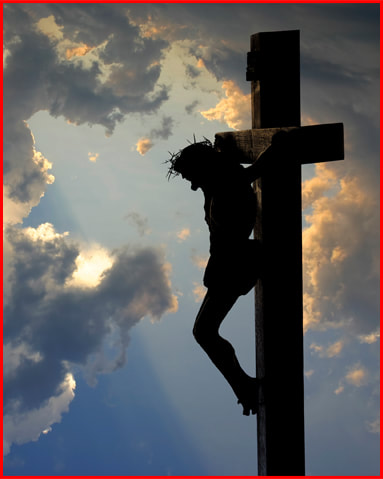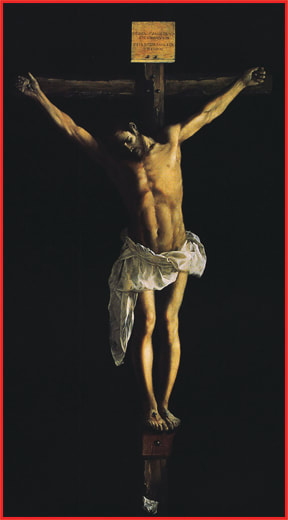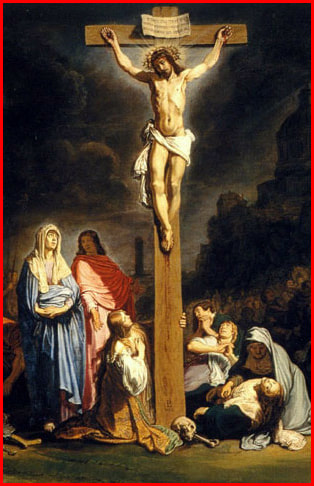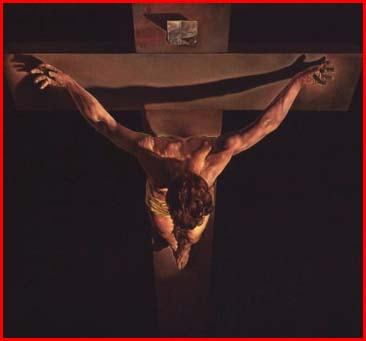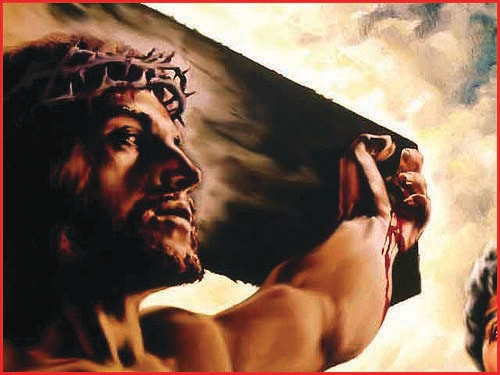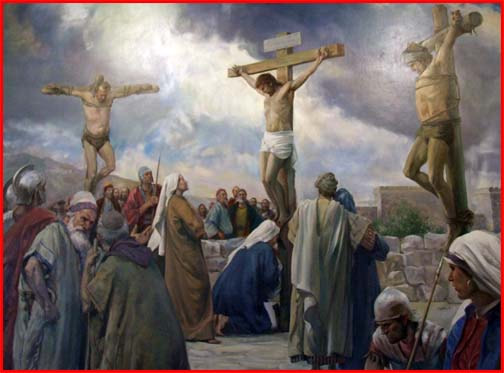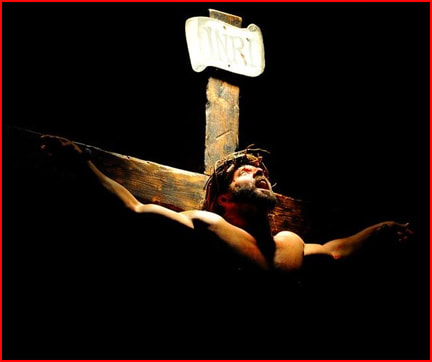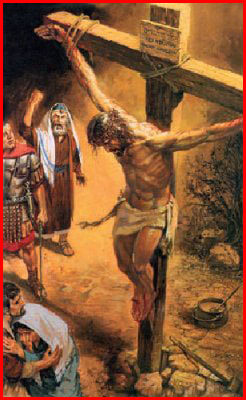| Devotion to Our Lady |
|
- Homepage
-
Daily Thoughts
- 2023 October Daily Thoughts
- Daily Thoughts Lent 2020
- Daily Thoughts for Advent 2019
- Daily Thoughts for October 2019
- Daily Thoughts for September 2019
- Daily Thoughts for August 2019
- Daily Thoughts for July
- Daily Thoughts for June
- Daily Thoughts for Easter 2019
- Daily Thoughts for Lent 2019
- Daily Thoughts for Christmas
- Daily Thoughts Easter 2022
- Sacred Heart
- Holy Ghost
-
Spiritual Life
- Holy Mass Explained
- First Friday Devotions
- First Saturday Devotions
- The Mercy of God
- Vocations
- The Path Everyone Must Walk >
- Gift of Failure
- Halloween or Hell-O-Ween?
- Ignatian Spiritual Exercises >
- Meditation is Soul-Saving
- Spiritual Communion
- Miraculous Medal
- Enrollment in Miraculous Medal
- St. Benedict Medal
- Holy Water
- Advice on Prayer
- Your Daily Mary
-
Prayers
- September Devotions
- Seven Sorrows of Our Lady
-
Novenas
>
- NV-Help of Christians
- NV-Nativity of Our Lady
- NV-Seven Sorrows
- NV- Sorrowful Heart
- NV-Pope St Pius X
- NV-La Salette
- NV-St Michael Archangel
- NV-Immaculate Heart
- NV-Assumption
- NV-Novena for Fathers
- NV-Novena for Your Mother
- NV-St Raphael Archangel
- NV-Souls in Purgatory
- NV-All Saints Day
- NV-Christ the King
- NV-Divine Motherhood
- NV-Guardian Angels
- NV-Rosary
- NV-Mirac Med
- NV- Imm Conc
- NV - Guadalupe
- NV - Nativity of Jesus
- NV-Epiphany
- NV-OL Good Success
- NV-Lourdes
- NV-St Patrick
- NV-St Joseph
- NV-Annunciation
- NV-St Louis de Montfort
- NV-OL Good Counsel
- NV-Last Supper
- NV-Passion
- NV-Pentecost
- NV-Ascension
- NV-Sacred Heart
- NV-Sacred Heart & Perpetual Help
- NV-Corpus Christi
- NV-OL of Perpetual Help
- NV-Queenship BVM
- NV-OL of Mount Carmel
- NV-St Mary Magdalen
- NV- Im Hrt
- August Devotions to IHM
- Immaculate Heart of Mary
- Litany of Dependence
- Prayers to St Mary Magdalen
- Prayers in Times of Sickness Disease & Danger
- Holy Souls in Purgatory
- Meditations on the Litany of Our Lady
- Special Feast Days
- Prayers to Mary (Mon-Sun)
- Litanies to Our Lady >
- Various & Special Needs
- Our Lady of the Rosary
- Our Lady of Mt. Carmel
- Our Lady of Perpetual Help
- Our Lady of Guadalupe
- Other titles of Our Lady
-
Rosary
- Downloads
- Consecration
- Easter Season
-
Holy Week
- Last Seven Words of Jesus >
- Characters of Passion >
- The Last Days of Christ
- Before Palm Sunday
- Palm Sunday
- Monday in Holy Week
- Tuesday in Holy Week
- Wednesday in Holy Week
- Holy Thursday (Last Supper)
- Holy Thursday (Agony & Arrest)
- Night Vigil with Christ
- Good Friday (Pilate & Herod)
- Good Friday (Way of Cross & Crucifixion)
- Saturday in Holy Week
-
Lent
- Ideas for Lent
- Daily Lenten Planner
- Daily Lenten Liturgy
- From Cold to Hot
- Lent with Aquinas
- Lent with Dom Gueranger
- Virtues for Lent
- History of Penance
- How Expensive is Sin?
- Confession of Sins
- Letter to Friends of the Cross
- Sermons for Lent
- Stations of the Cross >
- Lenten Prayers
- 7 Penitential Psalms
- Lenten Psalms SUN
- Lenten Psalms MON
- Lenten Psalms TUE
- Lenten Psalms WED
- Lenten Psalms THU
- Lenten Psalms FRI
- Lenten Psalms SAT
- Lenten Laughs
- Septuagesima
-
Christmas
- Epiphany Explained
- Suggestions for Christmas
- Food For Thought
- Christmas with Aquinas
- Christmas with Dom Gueranger
- Christmas Prayers
- Candles & Candlemas
- Christmas Sermons
- Christmas Prayers SUN
- Christmas Prayers MON
- Christmas Prayers TUE
- Christmas Prayers WED
- Christmas Prayers THU
- Christmas Prayers FRI
- Christmas Prayers SAT
- Twelve Days of Christmas >
-
Advent Journey
- Purgatory
- Christ the King
- Legion of Mary
- Scapular
-
Saints
-
Martyrs for the Faith
>
- Your Daily Martyr >
- All 365 Days of Martyrs
- Cristeros
- St Valentine & Valentine's Day
- Martyrs--Thomas Becket
- Martyrs--John the Apostle
- Holy Machabees
- Age of Martyrdom
- Carmelites of Compiegne
- Martyrs--Peter & Paul
- Martyrs--John the Baptist
- Martyrs--Andrew
- Martyrs--James the Great
- Martyrs--North American
- Martyrs--Seven Holy Sleepers
- Martyrs--Afra
- School of Martyrdom
- Martyrs--Christina
- Desert Saints >
- Saints for Sinners >
- Saints of Mary >
- History of All Saints Day
-
Martyrs for the Faith
>
- Precious Blood
- Synod 2023
-
Catechism
- Catechism Lesson 1
- Catechism Lesson 2
- Catechism Lesson 3
- Catechism Lesson 4
- Catechism Lesson 5
- Catechism Lesson 6
- Catechism Lesson 7
- Catechism Lesson 8
- Catechism Lesson 9
- Catechism Lesson 10
- Catechism Lesson 11
- Catechism Lesson 12
- Catechism Lesson 13
- Catechism Lesson 14
- Catechism Lesson 15
- Catechism Lesson 16
- Catechism Lesson 17
- Catechism Lesson 18
- Catechism Lesson 19
- Catechism Lesson 20
- Catechism Lesson 21
- Catechism Lesson 22
- Bible Study
-
Calendar
- Miracles
- Apparitions
- Shrines
- Prophecies
- Angels Homepage
- Hell
-
Church Crisis
- Conspiracy Theories
- Amazon Synod 2019 >
- Liberalism & Modernism
- Modernism--Encyclical Pascendi
- Modernism & Children
- Modernism--Documents
- The Francis Pages
- Church Enemies on Francis
- Francis Quotes
- Amoris Laetitia Critique
- Danger of Ignorance (Pius X)
- Restore all In Christ (Pius X)
- Catholic Action (Pius X)
- Another TITANIC Disaster?
- The "Errors of Russia"
- CRISIS PRAYERS
- Election Novena 2024
- The Anger Room
- War Zone
- Life of Mary
- Spiritual Gym
- Stupidity
- Coronavirus and Catholicism
- History & Facts
- Books
- Catholic Family
- Children
- Daily Quiz
-
Novena Church & Pope
- Day 01 Church-Pope Novena
- Day 02 Church-Pope Novena
- Day 03 Church-Pope Novena
- Day 04 Church-Pope Novena
- Day 05 Church-Pope Novena
- Day 06 Church-Pope Novena
- Day 07 Church-Pope Novena
- Day 08 Church-Pope Novena
- Day 09 Church-Pope Novena
- Day 10 Church-Pope Novena
- Day 11 Church-Pope Novena
- Day 12 Church-Pope Novena
- Day 13 Church-Pope Novena
- Day 14 Church-Pope Novena
- Day 15 Church-Pope Novena
- Day 16 Church-Pope Novena
- Day 17 Church-Pope Novena
- Day 18 Church-Pope Novena
- Day 19 Church-Pope Novena
- Day 20 Church-Pope Novena
- Day 21 Church-Pope Novena
- Day 22 Church-Pope Novena
- Day 23 Church-Pope Novena
- Day 24 Church-Pope Novena
- Day 25 Church-Pope Novena
- Day 26 Church-Pope Novena
- Day 27 Church-Pope Novena
- Day 28 Church-Pope Novena
- Day 29 Church-Pope Novena
- Day 30 Church-Pope Novena
- Day 31 Church-Pope Novena
- Day 32 Church-Pope Novena
- Day 33 Church-Pope Novena
- Day 34 Church-Pope Novena
- Day 35 Church-Pope Novena
- Day 36 Church-Pope Novena
- Day 37 Church-Pope Novena
- Day 38 Church-Pope Novena
- Day 39 Church-Pope Novena
- Day 40 Church-Pope Novena
- Day 41 Church-Pope Novena
- Day 42 Church-Pope Novena
- Day 43 Church-Pope Novena
- Day 44 Church-Pope Novena
- Day 45 Church-Pope Novena
- Day 46 Church-Pope Novena
- Day 47 Church-Pope Novena
- Day 48 Church-Pope Novena
- Day 49 Church-Pope Novena
- Day 50 Church-Pope Novena
- Day 51 Church-Pope Novena
- Day 52 Church-Pope Novena
- Day 53 Church-Pope Novena
- Day 54 Church-Pope Novena
- Penance Novena
- Daily WeAtheR Forecast
The Greatest and Most Important Week in the Church's Liturgical Year
CLICK ON ANY HOLY WEEK LINK BELOW
Also lots of LENTEN & HOLY WEEK DOWNLOADS on the downloads page (click here)
LITURGICAL PRAYERS FOR EACH DAY OF THE WEEK DURING LENT
| Sundays of Lent | Mondays of Lent | Tuesdays of Lent | Wednesdays of Lent | Thursdays of Lent | Fridays of Lent | Saturdays of Lent |
HOLY WEEK PAGES
| Daily Thoughts | Holy Week Main Page | Before Palm Sunday | Palm Sunday | Last Days of Christ |
| Holy Thursday Last Supper Novena | Good Friday Passion Novena |
| Monday of Holy Week | Tuesday of Holy Week | Wednesday of Holy Week | Holy Thursday (Last Supper) | Holy Thursday (Agony & Arrest) |
| Night Vigil With Christ | Good Friday (Pilate & Herod) | Good Friday (Way of Cross & Crucifixion) | Holy Saturday |
THE CHIEF CHARACTERS OF THE PASSION
| Characters of the Passion Mainpage | The Sanhedrin | Pharisees | Scribes | Saducees | Jewish Crowd | Roman Rulers |
| Judas | Annas & Caiphas | Pontius Pilate | Herod | Barabbas | Dismas the Good Thief | St. Peter | St. John | Mary Magdalen |
THE FOURTEEN STATIONS OF THE CROSS
| Introduction to the Stations of the Cross | Short Version of the Stations of the Cross (all 14 on one page) | 1st Station | 2nd Station | 3rd Station |
| 4th Station | 5th Station | 6th Station | 7th Station | 8th Station | 9th Station | 10th Station | 11th Station | 12th Station | 13th Station | 14th Station |
THE LAST SEVEN WORDS OF JESUS FROM THE CROSS
| Seven Last Words on the Cross (Introduction) | The 1st Word on the Cross | The 2nd Word on the Cross | The 3rd Word on the Cross |
| The 4th Word on the Cross | The 5th Word on the Cross | The 6th Word on the Cross | The 7th Word on the Cross |
PRAYERS AND DEVOTIONS TO THE SEVEN SORROWS OF OUR LADY
| Seven Sorrows Meditations | Short Prayers & Short Seven Sorrows Rosary | Longer Seven Sorrows Rosary |
| 1st Sorrow of Our Lady | 2nd Sorrow of Our Lady | 3rd Sorrow of Our Lady | 4th Sorrow of Our Lady |
| 5th Sorrow of Our Lady | 6th Sorrow of Our Lady | 7th Sorrow of Our Lady |
| Novena #1 to the Sorrowful Heart of Mary | Novena #2 to the Sorrowful Heart of Mary |
LENTEN PAGES
| ASH WEDNESDAY COUNTDOWN | LENT (MAIN PAGE) | DAILY THOUGHTS | DAILY LENTEN LITURGY | DAILY LENTEN PLANNER |
| LENTEN PRAYERS | THE 7 PENITENTIAL PSALMS | IDEAS FOR PENANCE | LENT WITH AQUINAS | LENT WITH DOM GUERANGER |
| HISTORY OF PENANCE | PENANCES OF THE SAINTS | HOW EXPENSIVE IS SIN? | CONFESSION OF SINS | ARE FEW SOULS SAVED? |
| VIRTUES FOR LENT | FROM COLD TO HOT | LENTEN LAUGHS | SERMONS FOR LENT | LETTER TO FRIENDS OF THE CROSS |
| STATIONS OF THE CROSS (INDIVIDUALLY) | ALL 14 STATIONS OF THE CROSS |
| THE LAST DAYS OF CHRIST | SPECIAL HOLY WEEK PAGES |
CLICK ON ANY HOLY WEEK LINK BELOW
Also lots of LENTEN & HOLY WEEK DOWNLOADS on the downloads page (click here)
LITURGICAL PRAYERS FOR EACH DAY OF THE WEEK DURING LENT
| Sundays of Lent | Mondays of Lent | Tuesdays of Lent | Wednesdays of Lent | Thursdays of Lent | Fridays of Lent | Saturdays of Lent |
HOLY WEEK PAGES
| Daily Thoughts | Holy Week Main Page | Before Palm Sunday | Palm Sunday | Last Days of Christ |
| Holy Thursday Last Supper Novena | Good Friday Passion Novena |
| Monday of Holy Week | Tuesday of Holy Week | Wednesday of Holy Week | Holy Thursday (Last Supper) | Holy Thursday (Agony & Arrest) |
| Night Vigil With Christ | Good Friday (Pilate & Herod) | Good Friday (Way of Cross & Crucifixion) | Holy Saturday |
THE CHIEF CHARACTERS OF THE PASSION
| Characters of the Passion Mainpage | The Sanhedrin | Pharisees | Scribes | Saducees | Jewish Crowd | Roman Rulers |
| Judas | Annas & Caiphas | Pontius Pilate | Herod | Barabbas | Dismas the Good Thief | St. Peter | St. John | Mary Magdalen |
THE FOURTEEN STATIONS OF THE CROSS
| Introduction to the Stations of the Cross | Short Version of the Stations of the Cross (all 14 on one page) | 1st Station | 2nd Station | 3rd Station |
| 4th Station | 5th Station | 6th Station | 7th Station | 8th Station | 9th Station | 10th Station | 11th Station | 12th Station | 13th Station | 14th Station |
THE LAST SEVEN WORDS OF JESUS FROM THE CROSS
| Seven Last Words on the Cross (Introduction) | The 1st Word on the Cross | The 2nd Word on the Cross | The 3rd Word on the Cross |
| The 4th Word on the Cross | The 5th Word on the Cross | The 6th Word on the Cross | The 7th Word on the Cross |
PRAYERS AND DEVOTIONS TO THE SEVEN SORROWS OF OUR LADY
| Seven Sorrows Meditations | Short Prayers & Short Seven Sorrows Rosary | Longer Seven Sorrows Rosary |
| 1st Sorrow of Our Lady | 2nd Sorrow of Our Lady | 3rd Sorrow of Our Lady | 4th Sorrow of Our Lady |
| 5th Sorrow of Our Lady | 6th Sorrow of Our Lady | 7th Sorrow of Our Lady |
| Novena #1 to the Sorrowful Heart of Mary | Novena #2 to the Sorrowful Heart of Mary |
LENTEN PAGES
| ASH WEDNESDAY COUNTDOWN | LENT (MAIN PAGE) | DAILY THOUGHTS | DAILY LENTEN LITURGY | DAILY LENTEN PLANNER |
| LENTEN PRAYERS | THE 7 PENITENTIAL PSALMS | IDEAS FOR PENANCE | LENT WITH AQUINAS | LENT WITH DOM GUERANGER |
| HISTORY OF PENANCE | PENANCES OF THE SAINTS | HOW EXPENSIVE IS SIN? | CONFESSION OF SINS | ARE FEW SOULS SAVED? |
| VIRTUES FOR LENT | FROM COLD TO HOT | LENTEN LAUGHS | SERMONS FOR LENT | LETTER TO FRIENDS OF THE CROSS |
| STATIONS OF THE CROSS (INDIVIDUALLY) | ALL 14 STATIONS OF THE CROSS |
| THE LAST DAYS OF CHRIST | SPECIAL HOLY WEEK PAGES |
THE SIXTH WORD
It is consumated!
It is consumated!
|
BLESSED ANNE CATHERINE EMMERICH
The Dolorous Passion of Our Lord Jesus Christ The hour of our Lord was at last come; his death-struggle had commenced; a cold sweat overspread every limb. John stood at the foot of the Cross, and wiped the feet of Jesus with his scapular. Magdalen was crouched to the ground in a perfect frenzy of grief behind the Cross. The Blessed Virgin stood between Jesus and the good thief, supported by Salome and Mary of Cleophas, with her eyes riveted on the countenance of her dying Son. Jesus then said: "It is consummated!" VENERABLE MARY OF AGREDA The Mystical City of God In the sixth word of the Lord: “It is consummated!” Lucifer and his hordes were informed that the mystery of the Incarnation and Redemption was now accomplished and entirely perfected according to the decree of Divine Wisdom. For they were made to feel that Christ, our Redeemer, had obediently fulfilled the will of the eternal Father; that He had accomplished all the promises and prophecies made to the world by the ancient Fathers; that His humility and obedience had compensated for their own pride and disobedience, in not having subjected themselves and acknowledged Him as their Superior in human flesh; and that they were now, through the wisdom of God, justly humbled and vanquished by the very Lord Whom they despised. The great dignity and the infinite merits of Christ demanded that, in this very hour, He should exercise his office and power of Judge over angels and men, such as had been conceded to Him by the eternal Father. He now applied this power by hurling this sentence at Lucifer and all his followers, that, being condemned to eternal fire, they instantly depart into the deepest dungeons of Hell. MEDITATION It Is Finished From all eternity God willed to make man to the image of His eternal Son. After having painted the heavens with blue and the earth with green, God then made a garden, beautiful as only God knows how to make a garden beautiful, and in it placed man made to conform to the image of God's Son. In some mysterious way the revolt of Lucifer echoed to earth, and the image of God in man was blurred and ruined. It Comes in Threes The Heavenly Father, in His divine mercy, willed to restore man to his pristine glory. In order that the portrait might once more be true to the Original, God willed to send to earth His Divine Son according to whose image man was made, that the earth might see once more the manner of man God wanted us to be. In the accomplishment of this task, only Divine Omnipotence could use the elements of defeat as the elements of victory. In the Divine economy of Redemption, the same three things which cooperated in our fall, also shared in our redemption. For the disobedient man Adam, there was the obedient man Christ; for the proud woman Eve, there was the humble virgin Mary; for the tree of the garden, there was the tree of the Cross. A Different Kind of Battle The Redemption was now completed. The work which His Father had given Him to do was accomplished. We were bought and paid for. We were won in a battle; fought not with five stones like those with which David slew Goliath, but with five wounds, hideous scars on hands and feet and side; in a battle fought not with armor glistening under a noonday sun, but with flesh hanging like purple rags under a darkened sky; in a battle where the cry was not "Crush and kill," but "Father, forgive"; in a battle fought not with spitting steel, but with dripping blood; in a battle in which he who slew the foe lost the day. Now the battle was over. For the last three hours He had been about His Father's business. The artist had put the last touch on His masterpiece and with the joy of the strong He uttered the song of triumph: "It is finished." Is My Work Finished? His work is finished, but is ours? It belongs to God to use that word, but not to us. The work of acquiring Divine life for humankind is finished, but not the distribution. He has finished the task of filling the reservoir of Calvary's sacramental life, but the work of letting it flood our souls is not yet finished. He has finished the foundation; we must build upon it. He has finished the ark, opening His side with a spear and clothing Himself in the garment of His precious blood, but we must enter the ark. He stands at the door and knocks, but the latch is on the inside, and only we can open it. He has enacted the consecration, but the communion depends on us; and whether our work will ever be finished depends entirely on how we relive His life and become other Christs, for His Good Friday and His passion avail us nothing unless we take up His Cross and follow Him. Sin is the great obstacle to the accomplishment of that task, for as long as there is sin in the world, Christ is crucified anew in our hearts. The Task Is Finished The death of a child or young person is always an especially sad event. In them the bloom of life was still fresh and unfolding. Death in a young person seems to be the denial of a promise; it seems to be the crushing of an unfulfilled pledge of growth, development and accomplishment. The sentiment of many is expressed in the words: "It is a shame that he had to die so young." Sometimes death comes to a young father or mother who have others dependent upon them. They were anxious and willing to fulfill their duties to their families, but the grim invitation to quit this mortal life came, and they had to accept. It happens at times that a priest is cut down in the prime of life, perhaps shortly after ordination, or after gaining a few years' experience. Ready and glad though he was to go on with the work of helping to save souls, he is forced to leave his task unfinished. So it is even with many in middle age whose lives are cut short. After long years of work and experience they were on the threshold of their most mature and productive years. With most people it takes time to acquire wisdom. Yet it seems that there is often but little time given to put the hard-won wisdom to practical use. Not many people in their forties or fifties care to say of their life and work: "It is finished." Christ Declares His Work Done Yet Christ on the Cross said those very words: "It is consummated." It is finished. He was in the prime of life, about 33 years of age. When He said, "It is finished," He did not mean merely that death was upon Him. He meant in the fuller sense that the task that had been given Him to do was done. He had accomplished His purpose in coming to earth. These words were the final expression of what He had said at the Last Supper: "I have glorified Thee on the earth; I have finished the work which Thou gavest Me to do." (John 17:4). When the laborer comes into his house after a hard day's work, he sits down and his mind runs back over the long hours of toil. He sighs contentedly, because he has finished the tasks of the day and can now rest. So Christ on the Cross looks back over the years of His life and especially over this past day. He has finished the work that was given Him. With the sense of having faithfully done all things, He can declare: "It is finished." Fulfills Prophecy Just before uttering the words: "It is finished," Jesus had tasted of a drink that was held up to His lips on a stalk of hyssop. A soldier had dipped a sponge into the mixture of vinegar (derived from wine) and water, fastened the sponge to the stalk and held it up. At the beginning of the three hours on the Cross, Jesus had refused the drink, which might have alleviated His pain. Now when about to die, He tastes of the vinegar and thereby fulfilled the prophecy of Psalm 68:22: "And in My thirst they gave Me vinegar to drink." All That Was Written Was Accomplished This was the last prophecy to be fulfilled before the last breath of Our Lord before He died. When He had set out for Jerusalem this last time, Christ had told the Apostles: "Behold, we go up to Jerusalem, and all things shall be accomplished which were written by the prophets concerning the Son of man." (Luke 18:31). One after another, the things that had been foretold were done. When Our Lord was nailed to the Cross and every last bone ached, the words of David were fulfilled: "They have dug my hands and feet. They have numbered all my bones." (Psalm 21:17-18). All the prophecies had been fulfilled—from His conception by a virgin and His birth in Bethlehem (Is. 7:14 and Mich. 5:2) to the dividing of His garments by lot (Psalm 21:19) and His crucifixion with criminals (Is. 53:12). So Jesus could taste the vinegar and say in all truth: "It is finished." Christ Was Not the Picture of Success Let us take a look at the Man who says He has finished all that was assigned Him to do. He is anything but the picture of success as He makes the statement that His task is successfully concluded. The sky is dark, which may seem to indicate that this was indeed the dark hour for the work of Christ. Most of His supporters and friends were not to be seen. They had left in fear and in amazement at the turn of events in Our Lord's life. Christ's enemies were triumphant; their plans to bring about His disgrace and death had been successful. They were the ones who mocked Him. He who had given so many devastating answers to them said nothing when they challenged Him to come down from the Cross if He were really the Son of God. (Mark 15:30). They even pointed to His miracles with contempt: "He saved others; let Him save himself." (Luke 23:35). It certainly appeared to be their hour of triumph. It certainly looked as if He were a final failure. Yet, as the earth began to quake, in the darkness and loneliness and shame and pain of the Cross, and not a minute away from death, Our Lord declared that His work was a success. "It is consummated." He had done all the things He had been sent to accomplish. What He Could Have Done Judging by worldly and material standards, we might well say: "What a shame for Him to die!" He was young. He could speak as no man ever had or ever would speak, to stir the minds and hearts of men and turn them to God. He could have continued to work miracles, thereby bringing comfort to many sick and crippled. He could have continued to instruct the Apostles. He could have gone on for thirty years as well as for three. Perhaps He could have written a book that might dissolve all religious doubt forever. He could have gone to Rome, the center of the civilized world, as Peter and Paul did later, and preached there the kingdom of God. Even if He eventually had to die for the salvation of mankind, why not at the age of sixty or sixty-five, after a full lifetime of His wonderful activities. No matter what we may think, His work at the age of thirty-three was completed. Otherwise He would not have said: "It is consummated." What Had He Accomplished? Humanly speaking, everything looked bad. Yet Christ had completed His work of preaching and working miracles among His own people, the Hebrew nation. By His obedience He had atoned for the disobedience of Adam; by His humility He had counteracted the pride of all sinners. The gates of Heaven were re-opened. The Church had been founded to preserve truth and to administer the Sacraments, thereby bringing light and grace to save the souls of men. Perfect adoration and praise had been rendered to the majesty of God. So, as a worthy laborer with his task completed, Christ could say: "It is finished." What about Our Own Sense of Values? Thinking this over, we may well stop to realign our sense of values. It may be that we have a false set of values in our own lives. Maybe the things we think are so important are not very important at all. Maybe we are losing sight of why we are here on earth in the first place. There is no better place to think things over than in the shadow of the Cross, with the words of Christ ringing in our ears: "It is consummated." Our Lame Excuses Many times the excuse is given for missing Mass or devotions, or for not receiving Communion frequently: "I don't have time." This shows a false sense of values. There is time for everything else, but not for giving honor and glory to God, not for properly taking care of one's own soul. To say you don't have time means, in the last analysis, that you put a higher value on the other things that are taking up your time. It is possible that even the daily morning and evening prayers are omitted quite regularly. Once in a while there may be a reasonable excuse. But to say: "I forget" is just another way of saying: "I don't think it is very important." What Worries Me? A way of checking on our sense of values is to ask ourselves what we worry about or are the most concerned about. What bothers us the most? Is it the state of our health? Is it the thought of establishing ourselves in an economically secure position? We should take care of our health; we should provide for our needs of food and shelter. But our main concern must always be our eternal salvation. If a person consults a doctor about a persistent symptom and, at the same time, lives unconcernedly and blithely in the state of mortal sin, there is something wrong with his sense of values. He is worrying about preserving his life on earth, but in the meantime his soul is hanging over the pit of Hell, and it makes no impression on him. If a person makes a social blunder and frets over it because of what other people may think, yet at the same time commits mortal sin and does not care much what God thinks about it, his sense of values is wrong. So the questions: "What bothers me? What do I worry about?" can give a good indication of where our highest values lie. For we are concerned over that which we value. We are concerned about losing a diamond, but not over a piece of glass. If the things of God and our own soul do not much concern us, then they are valued as a piece of glass. And if so valued, they are likewise trampled upon and cast aside as something of little worth. Seek First God's Will Our Lord told us not to be anxious about our food, or our clothing. "Be not solicitous therefore, saying, What shall we eat: or what shall we drink, or wherewith shall we be clothed? …. For your Father knoweth that you have need of all these things. Seek ye therefore first the kingdom of God, and His justice, and all these things shall be added unto you." (Matt. 6:31-33). If God takes care of the lilies of the field and the grass and the birds of the air, then He is certainly not forgetting us. Christ did not mean to encourage improvidence, but He wanted to tell us that we should rely on God more, to leave things up to Him, after we have done our reasonable part. How foolish it is to break God's laws in an attempt to provide for material wants. To work needlessly on Sundays, to seek extra work on Sunday, to earn a few more dollars, shows lack of trust in God. Sinfully to limit one's family is the utmost foolishness; it means taking the burden on oneself and leaving nothing to God. Each of Us Has a Task Assigned Just as Our Lord came into the world with a task to do, so each one of us has a particular job to do in this world. We have our main purpose of life to fulfill, which is to know, love and serve God. That is the general purpose of all of us. No matter what our station in life, or what our age, we are each supposed to grow in the knowledge and love of God and come to serve Him better. But God also has given us a particular job to do, one that concerns us as individual persons. He has in mind some special way for us to serve Him, some special degree of love for us to arrive at while on this earth. There may be quite a number of small individual jobs for us to do, and when they are finished, then God calls us out of this life. The biggest tragedy of life is to miss doing what God has sent us here to accomplish. The biggest mistake we can make in this life is to lay our plans with the question in mind: “What can I get out of it? How can I get the most out of life for myself?” Our question ought to be: “How can I best do whatever it is God sent me here to do? What shall I do, so that, when it is time to breathe my last breath, I can say as Christ said: "It is consummated"? No Accident It was no accident that Christ died on the Cross. "He humbled himself, becoming obedient unto death, even to the death of the cross." (Phil. 2:8). He had said: "My meat is to do the will of him that sent me, that I may perfect his work." (John 4:34). That must be our question: How can I be obedient to the designs of God? Our food must be to do the holy Will of God. How to Find Our Appointed Task To discover what it is that God has in mind for us, we should start early in life, begging the Holy Spirit to direct us into the proper major vocation. Maybe God wants us to live in the married state, the single state, or the religious or priestly life. Usually He does not "force" us in any one direction. Few are knocked to the ground as was St. Paul and told by a heavenly voice to follow Christ as a priest and apostle. To discover what God has in mind for us, we should also ask advice and guidance from a spiritual director, usually our regular confessor. If we are not interested enough to pray and to seek advice, then we may well enter the wrong vocation. At judgment, God will point out the work we did not accomplish upon the earth. Do Not Come Down from the Cross After we have chosen a vocation, we should live according to all the laws of God concerning our particular state: married, single, priestly or religious. The selfish single person will be asked on the Day of Judgment why he has not aided the needy, or devoted time to the care of parents, or helped in religious or charitable work. The careless priest will be told to look down and see the many souls left in ignorance and sin, whom he should have instructed and brought to repentance. The married who neglected their duties will have pointed out to them how their children were not taught the fear and love of God. They may have pointed out to them the work that some child of theirs should now be doing on earth—but that child was sinfully denied even existence. Where is this son of yours who should now be the assistant priest at this church? Look at these souls wandering without a shepherd. To all alike will be pointed out this truth. The world taunted you: "Come down from the cross and save yourself." Unlike Christ, you tore yourself free from the cross of duty and tried to save yourself the pain and hardship of accomplishing your task on the earth. Therefore your work has not been finished. Before you breathed your last, you could not in truth say: "It is consummated." It is not as difficult as might be imagined to find out what God wants us to do. If we are eager, and pray earnestly to do His will, to do our job in life; if we are faithful to the duties of each hour, God will enlighten us. Each day we ought to pray with Christ: "Not my will, but thine be done." (Luke 22:42). We must be convinced that we are here to do God's Will, to accomplish some special job. Our job may be easy or hard, but whatever it is, God will see us through. At the end, like the weary laborer at the close of day, we will be able to look back over our day on earth and say: "Thank God the work is done." Like Christ on the Cross we will be able to say: "It is consummated. I have done the work You gave me to do." PRAYER Dear Jesus! Redemption is Your work; atonement is mine, for atonement means at-one-ment with Your life, Your truth, and Your love. Your work on the Cross is finished, but my work is to take you down, for You are on the Cross, but we must take You down. You have been hanging there long enough! Through Your Apostle, Paul, You told us that those who are Yours crucify their flesh and its concupiscences. My work, then, is not finished until I take Your place upon the Cross, for unless there is a Good Friday in my life, there will never be an Easter Sunday; unless there is a garment of a fool, there will never be the white robes of wisdom; unless there is the crown of thorns, there will never be the glorified body; unless there is the battle, there will never be the victory; unless there is the thirst, there will never be the Heavenly Refreshment; unless there is the Cross, there will never be the empty tomb. Teach me, Jesus, to finish this task, for it is fitting that the sons of men should suffer and thus enter into their glory. |
Web Hosting by Just Host

